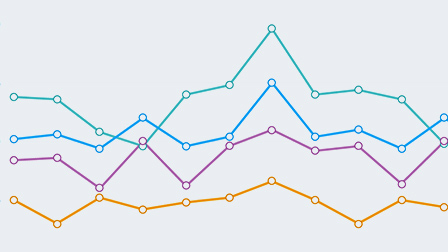Highlights
Director-General

News
Unhealthy dietary patterns drive $8 trillion in annual hidden costs of global agrifood systems
About 70 percent of global hidden costs stem from health impacts linked to non-communicable diseases, particularly in more industrialized agrifood systems

News
FAO Food Price Index rises in October, its steepest climb in over a year
Global cereal production and trade likely to decline from last year

Director-General addresses Joint Meeting of FAO Programme and Finance Committees
QU Dongyu provides an overview of progress and developments in FAO’s work in recent months

Interactive story
Putting a spotlight on our food's hidden costs
Many of these hidden costs can be linked to diet-related health impacts. Let's explore the causes and see how we can drive change.

In Focus
Programme and Finance Committees
Follow the sessions of FAO’s governing bodies working on the development and implementation of the Organization's activities and financial administration.

In Focus
FAO response to global food security challenges
Data analyses, policy recommendations, and actions on the ground.

Publication
Read your way to the COPs 2024
Take a look at a selection of publications presenting FAO’s core work on tackling biodiversity loss, climate change and land degradation.

Campaign
There’s a lot to learn from camelids
Camelids play a key role in the culture, economy, food security and livelihoods of communities worldwide. Read their stories and discover more!

Statistics
FAOSTAT - Food and agriculture data
FAOSTAT provides free access to food and agriculture data for over 245 countries and territories and covers all FAO regional groupings from 1961 to the most recent year available.
Director-General

Director-General addresses Joint Meeting of FAO Programme and Finance Committees
QU Dongyu provides an overview of progress and developments in FAO’s work in recent months
Join the conversation
Voices of Impact
Sowing seeds of hope in Colombia – SCALA programme supports climate resilience and agrobiodiversity
08/11/2024
Harsh climate is increasingly impacting the livelihoods of Wayuu people in Guajira, Colombia. Watch the video and see how an FAO project is supporting them to rediscover Indigenous knowledge, embrace innovation and become more climate resilient and food secure.
Video
Behind the food price tag
11/11/2024
Uncovering the true cost of food to transform our agrifood systems.
Podcast
FAO Brief - 11 November 2024
11/11/2024
In this episode; FAO calls for the transformation of food systems at the UN Climate Summit in Azerbaijan; a new FAO report reveals that unhealthy dietary patterns drive $8 trillion in annual hidden costs of global agrifood systems; and the Food Price Index reaches its highest level in 18 months.
Data
FAO Food Price Index 2021-2024
2020 World
31.2%
2010 World
31.5%
In depth

Data
Transparency is key to FAO’s mission
Our new transparency portal shows how and where our resources are used and the results we have achieved. Explore the portal now.

Publication
Medium Term Plan and Programme of Work
The Director-General’s Medium Term Plan (Reviewed) 2022-25 and Programme of Work and Budget 2024-25.

In Focus
FAO Data Lab
The FAO Data Lab for Statistical Innovation modernizes the statistical business process, with a specific focus on emergency contexts, when having access to timely information is very important.
FAO and the SDGs
Hover the mouse over an SDG icon for more information
A world free from hunger and malnutrition where food and agriculture contributes to improving the living standards of all

FAO works with governments and partners to empower some of the world’s most marginalized people to end rural poverty.

FAO helps ensure food security by developing ways of growing food that will work in the future so that millions of people don’t go hungry.

Good health starts with nutrition. FAO sets global standards and works with governments and the private sector to ensure food quality and safety throughout the food chain.

FAO invests in educational systems for rural communities and supports improved access to primary education and school meals in order to create equal opportunities for all and chances of lifelong learning.

FAO supports gender equality in the agricultural sector in an effort to raise levels of nutrition in local communities and improve agricultural productivity.

FAO works with governments to ensure water use in agriculture is made more efficient, equitable and environmentally friendly.

FAO promotes the use of renewable energies and works to ensure access to modern energy services across the food chain.

FAO seeks better economic opportunities for all by investing in sustainable agricultural practices and food systems that reduce inequalities and create decent jobs.

FAO seeks to secure a future for rural communities via investments in transportation, irrigation, food storage facilities and communication technologies.

FAO works with countries and partners to generate employment in rural areas, ensure access to natural resources for the most vulnerable and connect farmers to markets.

FAO works to improve urban healthcare, water quality and rethink city region food systems to help deter the negative effects of sprawling urbanisation.

FAO coordinates major global initiatives and projects to tackle food waste and loss, partnering with international organisations, the private sector and civil society.

FAO supports countries in responding to the threats of climate change by providing advice, data and tools for better agricultural policies and practices.

FAO, in partnership with governments and fishing communities, implements best practices in fisheries to ensure our oceans are protected as a means of livelihoods.

FAO promotes sustainable approaches to natural resource management and supports endeavours that promote a balance between conservation and development initiatives.

FAO plays a critical role in peacebuilding, restoring rural livelihoods, building resilience and participatory approaches to policymaking.

FAO acts as a neutral policymaking forum and develops partnerships with all concerned with food and agriculture to ensure a world free from hunger.


















Globally Important Agricultural Heritage Systems.
FAO BRIEF – 11 November
FAO at COP29, the SOFA 2024 report, and the FPI



